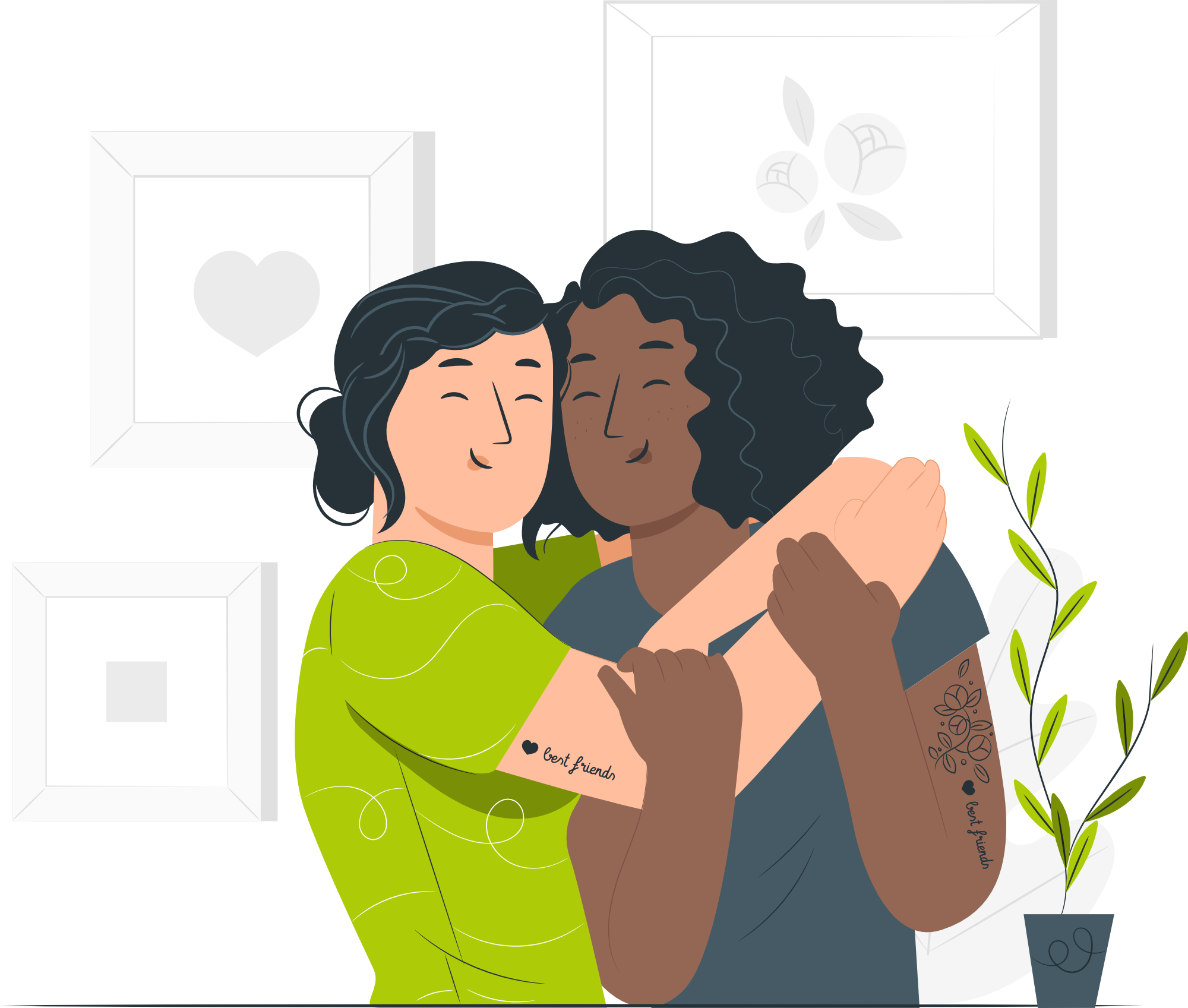Maintaining relationships
When we are in a carer’s role, we can get so busy and overwhelmed we can forget to communicate.
Gradually this impacts on the relationships we have with other people. Time spent on pleasurable chat and activities can begin to take a back seat and the focus becomes all about chores, medications and appointments.
If we do not maintain our relationships we risk losing them – or at the very least – the richness of them and what they give to us.

Being a carer does not mean being “just” a diary organiser, driver or nurse, though some of these jobs may be important. You are still the person you were and the relationship still has, at its core, the love or friendship it started with.
Just like it did before, it needs to be “worked on” to keep it fresh and loving. This is what we mean by maintaining relationships.
So how do you do it? Let’s look at four ideas:
1. Connecting through open and honest talking
2. Connecting through common interests
3. Connecting through intimacy
4. Connecting with others
1. Connecting through open and honest talking
Carers sometimes tell us that they begin to wonder how to talk to their relative or friend as so many conversations become dominated by appointments, pain and medications.
As a consequence, the small things in life that are part of normal chat – such as the beauty of a rainbow, when to pay a bill, something you might have read in the paper, whether there is enough cat food to last the week – begin to be lost.
The relationship can end up falling into one or more common communication traps:
Some common communication traps
-
Not wanting to talk
-
Mind reading, or second guessing what the other person is thinking
-
Misunderstanding what they are saying or what they want
-
Not being honest with each other or trying to protect each other from problems
-
Not knowing what to say
-
Guilt because they are suffering and you should just get on with it; yet you have your own needs.
-
Carers often push away their own needs to focus on those of their relative or friend
-
Conflict because neither person’s needs are being fully met


“Be honest with yourself and your friend or relative about your own needs”
Overcoming communication traps
-
Stopping for a mid-morning coffee together and chatting about what’s in the paper.
-
Identifying a time to do the week’s menu together.
-
Being strong – your role is not to second guess what your relative or friend wants; instead suggest to them that unless they let you know what they want, you cannot help.
-
Being honest with yourself and your friend or relative about your own needs. For example, if you need or want to go out, but are worried about leaving them on their own, tell your friend or relative. Perhaps you could work out together which of their friends might call in to have a cup of tea while you are out meeting your own friend.
-
Learning more about pain. It is sometimes difficult to know what to say or ask because we do not know how our relative or friend’s pain, fatigue, reduced mobility or depression affect them. The key is to ask them or to learn more by, for example, exploring the Ten Footsteps for people living with pain, on this website.
When conflicts arise
If conflict starts to arise, you may need a more formal approach. For example:
-
Identifying a time to talk
-
Minimising interruptions and stresses
-
Talking in a neutral venue, perhaps even in a public place
-
Allowing each person to have 5 minutes and writing your responses down during this time, rather than interrupting
-
Owning your own thoughts and feelings – using “I” language, rather than “you”
-
Identifying what behaviours are a problem (“I would really appreciate you wiping up spills straightaway”), not making them a personal fault (“You are so messy”)
-
Problem solving through the items
-
Working towards practical goals
Give some thought as to which of these will work best for you
2. Connecting through common interests and pleasurable activities
Relationships are not just about talking; they are also about having shared interests.
Here are some ideas:
Working together
For instance, if you are cooking, perhaps your relative or friend could peel the veg while sitting down; maybe they could dust easily reachable items, while you do the rest; perhaps they could pay the gas bill, while you do the dishes.
Encouraging your relative or friend to do what they can for themselves is really important for you both. If you take everything on they will lose their independence and become less fit, less able to focus and less willing to socialise. In your care and concern you may end up “killing with” kindness. This is sometimes called being overly solicitous or attentive.
Equally, you do not want to push them beyond what they can realistically do. It is no good insisting that you drive six hours to a wedding without stopping if they can only sit for an hour. Sometimes carers can fall into a trap of suggesting their relative or friend does “just another five minutes” when actually they need to stop “now”. We say a bit more about this in Footstep 4 and Footstep 5.
Seeking a new common interest
Examples might be that one of you loves walking and the other photography; perhaps you could combine the two?
Other activities might be more sedentary, such as Lego, painting by numbers, jigsaws and mindful colouring.
A third area of common interests might be more social, such as a weekly quiz, board game cafés or book clubs.
We have kept the list short to encourage you to think of your own ideas together.
Small pleasurable actions
For couples these might include a weekly date night at home with a meal at a candle-lit table, rather than in front of the TV.
For friends it could be a monthly movie night (with or without homemade popcorn).
Small pleasurable actions can also include a shared moment of laughter, the smell of a flower or looking at the stars.
Finding out about the other person’s goals
Finding out what your friend or relative is working on will help you to think of ways to support them. We ‘ve found that this often enables people to resume joint activities, even if in a slightly different way than they did before. For example, it may be that you used to shop together, or go out for a walk.
Perhaps this stopped because your relative or friend could not cope with the distance, or could only walk very slowly. You might try to resume this by, for example, taking a shorter walk to a café where you could sit and have a coffee together before you complete the shopping. It is important to find something that will work for you both.
3. Connecting through intimacy
Being a carer can change the way you relate to your partner’s body, but it does not have to be for the worse. Here are some ideas to consider:
You can problem-solve together the things that both of you enjoy that does not worsen your partner’s pain
It can be easy for a carer to be so careful about making pain worse that he or she stops caressing, cuddling, hugging, kissing, and making love.
Only the person with pain can say what the right balance is ie. the risk of more pain versus feeling loved and enjoying intimacy, and it won’t be the same every time.
So although many couples get into habits of how they relate physically, and rarely if ever talk about what each of them likes in terms of comfort, affection, and sexual contact, it is essential that both the person with pain and the carer talk about these things.
There are two good articles in a past edition of Live Well with Pain’s newsletter. One is on intimacy and the other on relationships at work.
You can download the newsletter here
Many people assume that sexual contact should and inevitably does lead to penetrative sex, but there is no rule!
Plenty of people with disabilities and physical limitations have happy and satisfying sexual lives, because they discuss with their partners, before and afterwards, what works and what does not work for them. If it does not work for both of you, it is not failure, but useful information.
Some people decide that they no longer want to attempt sexual intercourse . . .
but still want to be cuddled, caressed and touched in erotic ways, and this can be a journey of exploration and learning for both partners. Sex toys, and sexy films, may help with this exploration: the only “rule” is that both partners should enjoy them.
One final point: some medicines can affect sex drive and / or ability to have sex
If you and your partner are concerned about this, you might want to speak to your GP or pharmacist.
You can find out more about the side effects of medicines for persistent pain in this useful leaflet
4. Connecting with others
When we take on the role of carer it is easy to lose our personal identity and, through that, our personal relationships with family and friends. There are a number of tricky habits we can fall into:
Only seeing others when the person we care for does. If this happens it can feel like people stop seeing us as an individual and we may stop behaving as one.
Not making time to see family or friends. If this happens, we can become very isolated.
Never talking about how our role as a carer affects us. Sometimes we avoid talking because we think others will see us as a failure and someone who cannot cope. Yet it’s normal to get help from family and friends throughout our lives– so why do we want to stop when we become a carer?
There may be other behaviours you’ve spotted that are isolating you.
Maintaining relationships with others is crucial to our social health and well-being. Time with family or friends can give us an opportunity to chat, give and receive emotional support and feel human. Here are some ideas:
You might want to talk to someone about your role and responsibilities as a carer. Perhaps you need to offload, perhaps you are looking for some ideas on how to manage things differently.
Maybe it would make your life easier if you shopped online, but you have never done this before. Perhaps a family member or friend could do it with you the first time.
Perhaps you need to change your mobile phone, broadband or utility contract, but are not sure of the best options. Maybe someone you know could look into it for you and come back with some recommendations.
Perhaps you are desperate for a full night’s sleep. Maybe someone could come and stay for a night to help, rather than just visit. You could even ask them to strip the bed and put the linen in the washing machine before they go.
You might just want to chat about the love you have for the person you care for, everyday things or what is going on in the world. Chatting to others may give you ideas to talk about with the person you care for.
Making time for each of you to independently see family and friends is good for you both. It gives each of you a chance to be yourselves. If you cannot spare the time to travel to them, maybe they will come to you even if just for a short walk or coffee.
Maybe you would just like someone to ask how you are, rather than just how the person you care for is. Often when someone does catch us unawares with that question we answer “I’m fine.” Sometimes we give that answer because we assume they are not really asking – it is just social politeness. If you are “fine” that is great. If not, you may want to begin to relearn how to “tell it like it is.”
Giving an open honest reply values the person who asked. It shows you trust them and care about them. It opens the door to you asking how they are.
So instead of saying “I’m fine”, we could test out saying:
I am tired
I did not sleep so well last night
I’ve got backache
It’s not been a good week I’m worried about . . . eg. money, my health, whether the car will pass its MOT, etc
Once you have some ideas for an opening reply that works for you, you might then give some thought to how far you want to go into detail. With some people you will go further than with others. However far you choose to go, you need to feel safe.
Maintaining relationships
Key ideas
✔ As carers, we can get so busy and overwhelmed we forget to communicate with others
✔ If we don’t maintain our relationships we risk losing them – and the richness they give to us
✔ Learn to connect with others through open and honest talking
✔ Remember – you are still the person you were and the relationship with the person you care for still has, at its core, the love or friendship it started with
Next footstep
